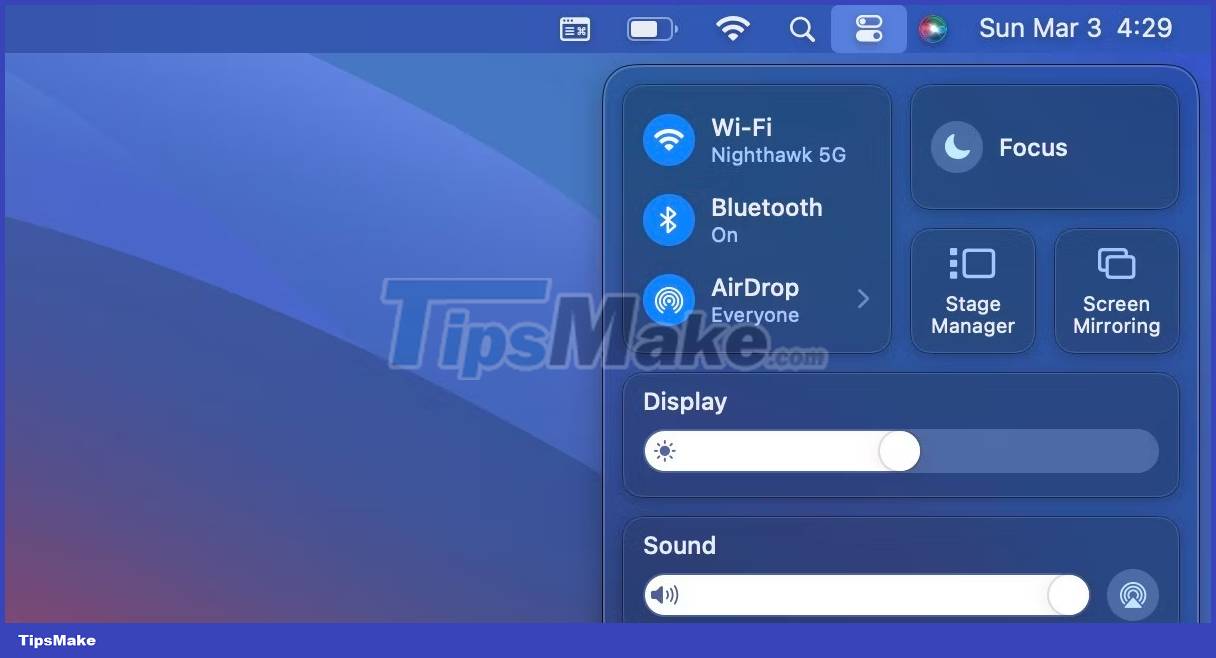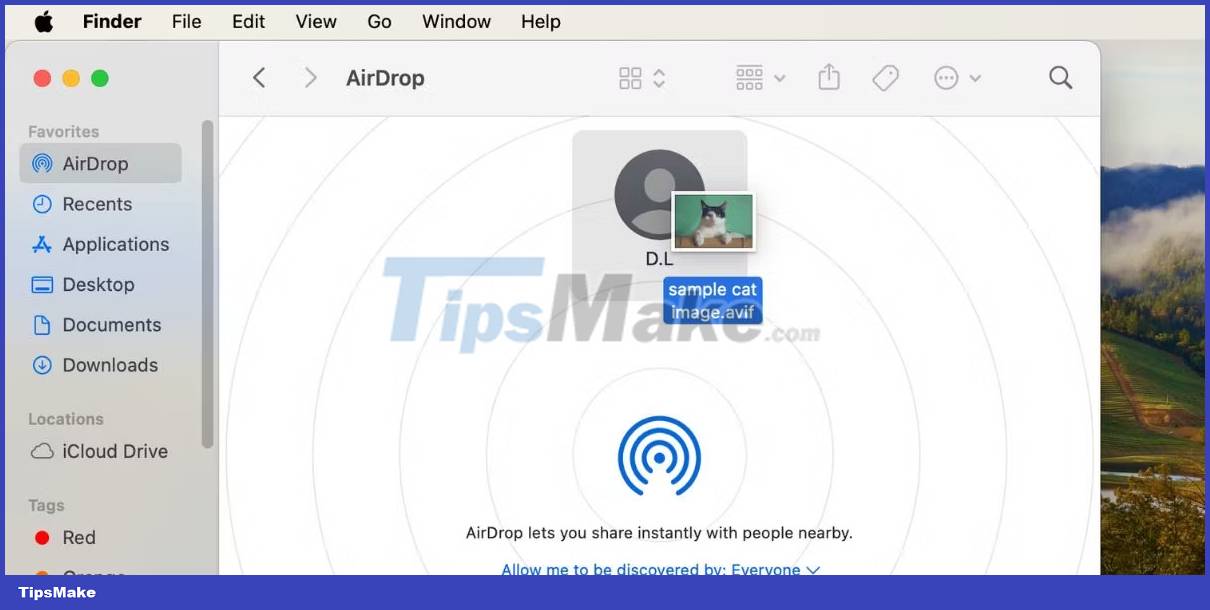How to use AirDrop on Mac
Here's how to enable and use AirDrop on your Mac to send photos, documents, web pages, etc. to other Apple devices.
How to send files from Mac using AirDrop
AirDrop uses WiFi and Bluetooth to create a wireless peer-to-peer connection that allows users to share files between two Apple devices. AirDrop's range is approximately 30 feet (10 meters).
One of the benefits of sharing files via AirDrop is that it doesn't matter if you have that person as a contact or not. Plus, every file you transfer is fully encrypted.
To start sending files via AirDrop on your Mac, click the Control Center icon in the upper right corner of the menu bar, then click AirDrop and turn it on. Bluetooth and WiFi will automatically turn on when you do this.
The recipient must also enable AirDrop on their Apple device. Note that if they are not in your contacts, they should set their AirDrop setting to Everyone after enabling the feature. Alternatively, you can go to Finder > AirDrop > Allow me to be discovered by > Everyone.

Then, Control + click the file you want to send and select Share > AirDrop. In apps like Preview, click the Share icon (box with arrow) to select AirDrop.

Finally, click on your target recipient to send them the file via AirDrop. The recipient must select the Accept button on their device to successfully receive the file.

Besides using the Share > AirDrop method shown above, you can also drag and drop your files in Finder to send them via AirDrop.
Go to Finder > AirDrop to see the people or devices available for you to send files via AirDrop. Open a second Finder window and navigate to the file you want to transfer. Now, drag and drop it onto the contact in the AirDrop window.

How to receive files on Mac using AirDrop
Receiving files via AirDrop on a Mac is quite simple. As long as AirDrop is turned on and set to Everyone, you'll receive notifications on your Mac when nearby Apple device users send you files. Click Accept and select your preferred file destination to receive the file.

Some common privacy concerns with AirDrop include receiving files on an Apple device without your knowledge. However, as illustrated in the steps above, you will always have the opportunity to accept or decline before the file transfer begins.
Overall, AirDrop is the fastest way to share files between two Apple devices when both the sender and recipient are in the same space, such as an office or coffee shop.
However, it's not perfect. If you're having trouble sending or receiving files, there are solutions to quickly fix AirDrop on your Apple device. And if distance is an issue, don't worry; There are other ways to transfer files between your Apple devices.
You should read it
- ★ How to fix AirDrop problems on Mac
- ★ How to share original quality photos via AirDrop on iOS 13
- ★ How to fix AirDrop not working error on iOS 16
- ★ Warning: Apple device users need to immediately turn off this feature when not in use to avoid data disclosure
- ★ How to turn off AirDrop on iPhone, iPad